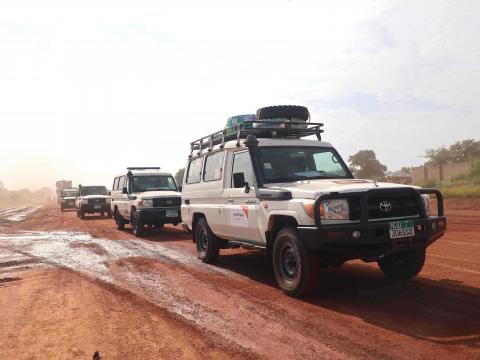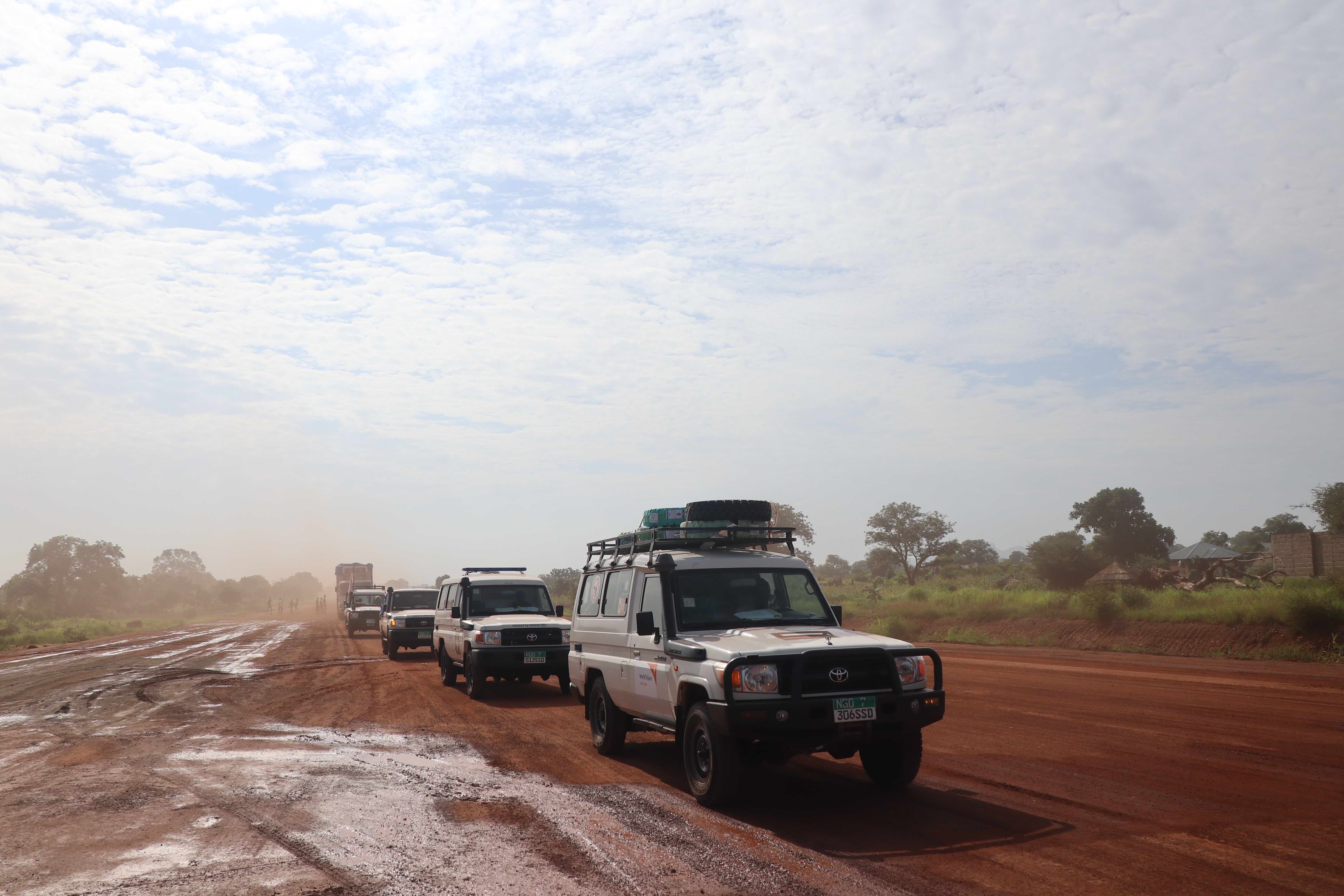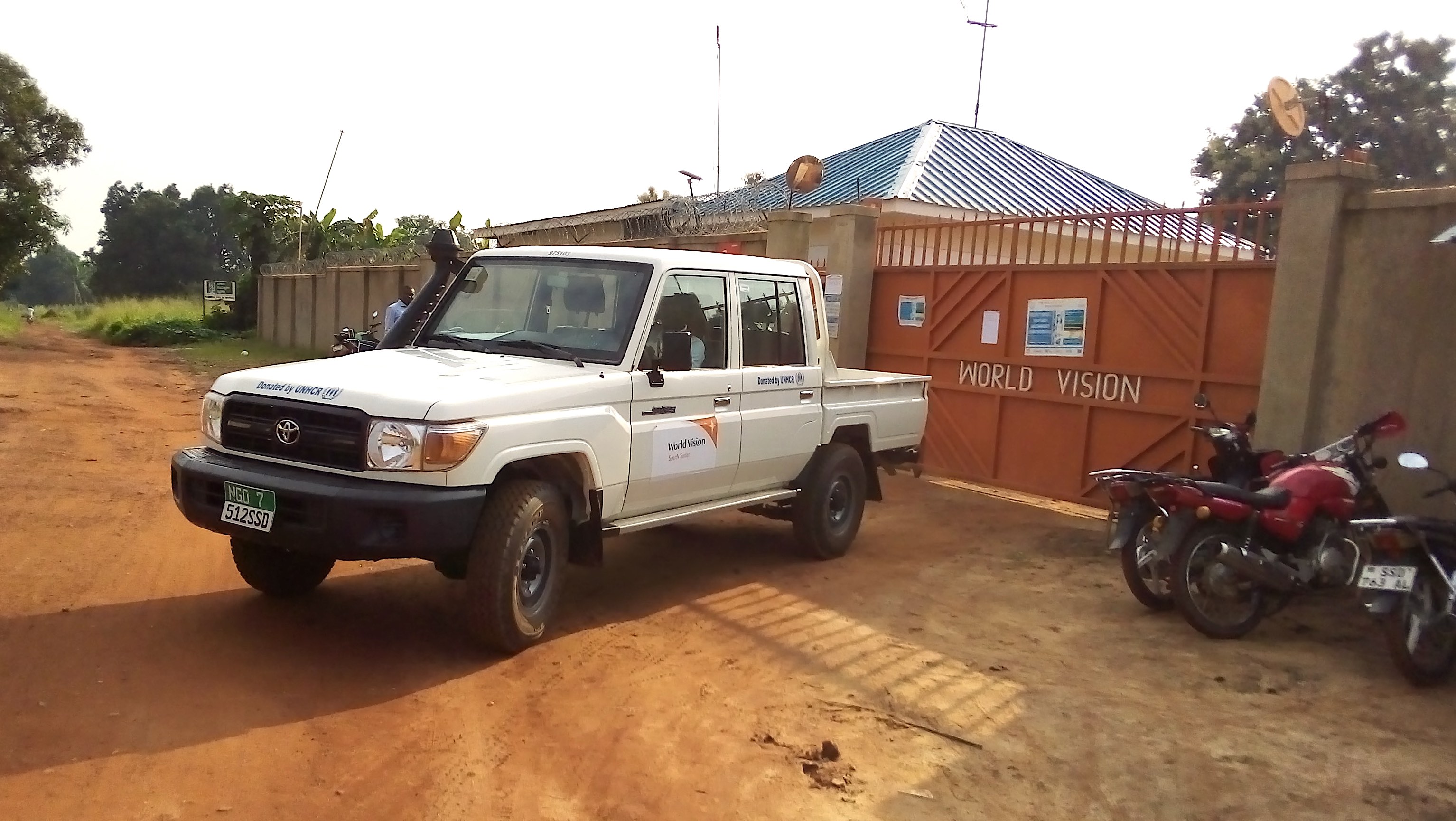New vehicles from UNHCR to boost World Vision’s campaign against COVID-19 and other diseases

“This support from UNHCR is a celebration for partnership at work. It is not every day that we receive these much-needed vehicles to augment our fleet being used in the most challenging roads in Western Equatoria Zone. They depreciate faster because of the tough road conditions and could delay projects when there is a breakdown”, says Enid Ocaya, World Vision’s Zone Manager.
The UN High Commissioner on Refugees (UNHCR) donated the three vehicles composed of two all-terrain pick-up trucks and one ambulance that will be based in Ezo County and will be used to serve 27 health facilities being supervised by World Vision through the support of the Health Pooled Fund (HPF). Initially intended for the response to the Ebola Virus Disease (EVD), they will now be utilized for the COVID-19 campaign.
Related story: Field team face tough roads and communal clashes

Ezo County needs all the support it can get as it receives a steady influx of refugees coming from the neighboring Democratic Republic of Congo (DRC) and from the Central African Republic (CAR). One pick-up truck will serve the Makpandu Refugee Camp which is home to over 5,000 refugees being supported by World Vision, the World Food Programme (WFP) and UNHCR.
We thank the UNHCR and other partners for this collaboration. It will surely bear greater impact to our operations thereby helping more people on time. No organisation can do it alone and partnerships like this enable all of us to make meaningful contributions in our respective areas of strength. Collectively, it will positively impact the vulnerable children.
Delivering the vehicles from South Sudan’s capital city Juba to Western Equatoria’s capital town Yambio is another challenging task. It took the team of drivers three days to reach the destination safely. Together with the fleet from another organization World Relief, the vehicles traveled an estimated distance of 436 kilometers.
Related story: Mission Aviation Fellowship helps transport health equipment and supplies

The plan to travel for two days became three due to bad roads, heavy rains and other unforeseen conditions. One commercial truck broke down and blocked all road users. In several instances, the drivers have to stop and clear their way through the bush.
Dennis Ayume, World Vision’s Administration Manager, shares, “Complying with COVID-19 requirements, the drivers from Yambio have to collect the vehicles from Mundri county while the other group underwent the quarantine procedures. This has added to the already long transport process.”
“When you send the drivers to the field, they are required to be quarantined for 14 days and on return to Juba, they also have to be quarantined for another 14 days, a total of 24 days out of the office. While the trip is approved by the National Security, the drivers have to contend with security risks along the way and thus carefully navigate with their itinerary”, Ayume adds.

The drivers travel from 9:00 in the morning through 5:00 in the afternoon. The road was properly mapped before they left Juba and drivers were instructed stop-over points. They were required to seek clearance from the World Vision Fleet and Administration team before proceeding to the next point.
Ocaya concludes, “We thank the UNHCR and other partners for this collaboration. It will surely bear greater impact to our operations thereby helping more people on time. No organisation can do it alone and partnerships like this enable all of us to make meaningful contributions in our respective areas of strength. Collectively, it will positively impact the vulnerable children.”
Related story: A single mother and a refugee battles the odds for her children

Story by Cecil Laguardia, Communications Manager I. Photos by Scovia Faida Charles Duku, Communications Coordinator and Luke Wamite, WECAP Project